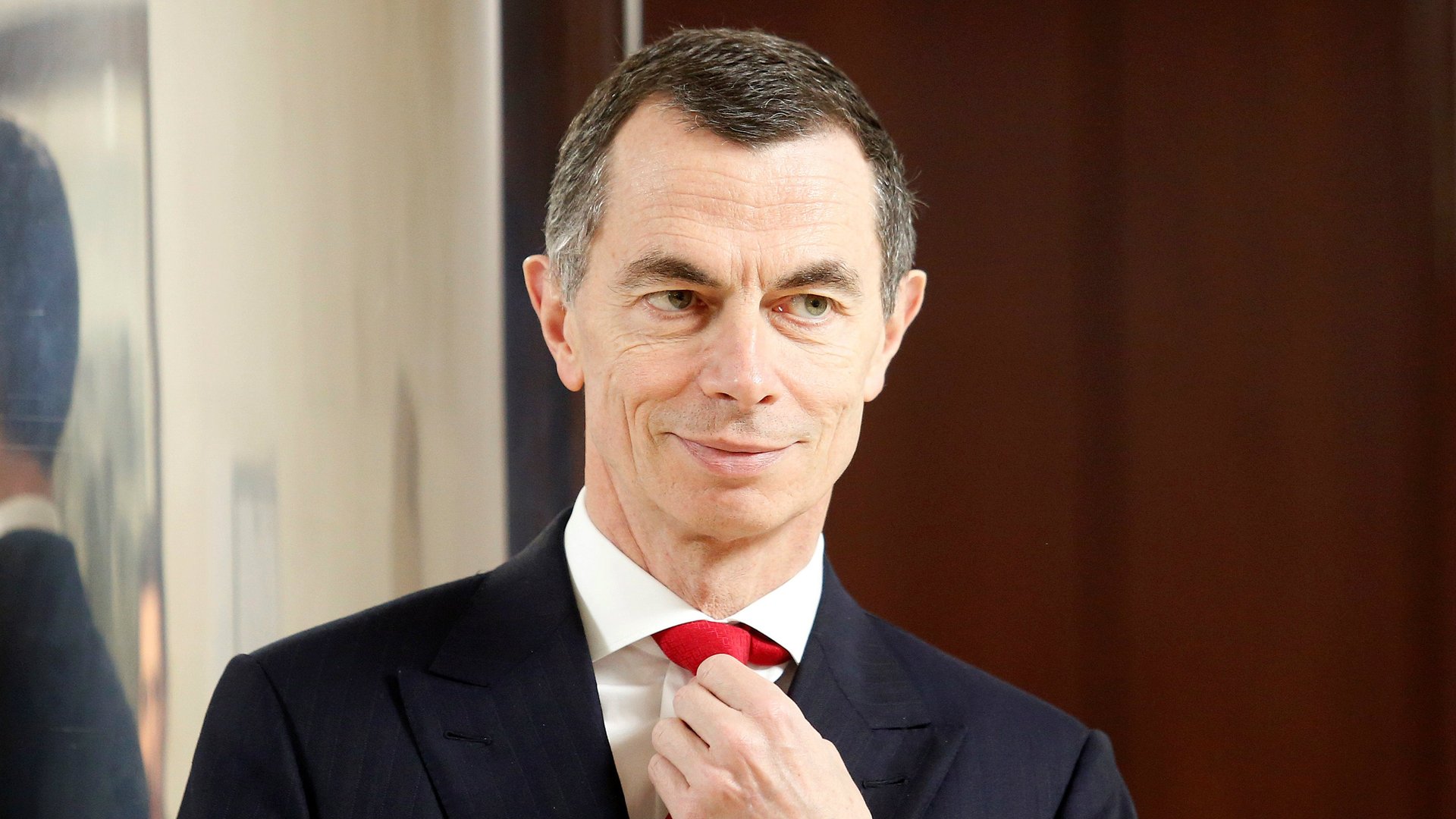A bank chief says negative rates may be bad for banks, but good for society
The head of one of Europe’s biggest banks says (paywall) his peers should stop moaning about negative interest rates, which are seen as squashing profits for the region’s big lenders. “The banks in Europe are here to finance the economy,” said Jean Pierre Mustier, the president of the European Banking Federation (EBF) and chief executive of UniCredit.


The head of one of Europe’s biggest banks says (paywall) his peers should stop moaning about negative interest rates, which are seen as squashing profits for the region’s big lenders. “The banks in Europe are here to finance the economy,” said Jean Pierre Mustier, the president of the European Banking Federation (EBF) and chief executive of UniCredit.
“We have negative rates today. So be it,” said Mustier, speaking as the president of the EBF at the lobbying group’s summit in Brussels. “Negative rates are for the purpose of society. Not against or for the banks.”
Fearing economic stagnation, or worse, central bankers in Tokyo, Frankfurt, and Washington have spent years driving bond yields lower in hopes of boosting their economies and creating jobs. Lower yields are meant to cut the cost for businesses to borrow, and to induce investors to take more risk and extend money to enterprising companies, thereby boosting growth and employment. The European Central Bank is restarting its bond buying program, known as quantitative easing, or QE, as economic growth sputters.
But when rates approach or fall below zero it can dry up the spread between the deposit rates at which banks borrow and the loan rates at which they lend out money. Net interest margin (Quartz member exclusive) is an important profit engine for lenders, and has given US banks more leeway to spend on technology and talent. Negative interest rates in Europe, meanwhile, are widespread and seem increasingly entrenched.
Executives at some of European biggest financial institutions, such as Deutsche Bank CEO Christian Sewing, have protested the ECB’s policies. Even some officials at the central bank have complained; Sabine Lautenschlaeger resigned out of disapproval.
At the EBF summit, Mustier pointed out that negative interest rates could also be helping the banking sector: Financial companies might be less profitable without QE because the economy wouldn’t be performing as well without it. Banks should make sure they are passing low and negative interest rates along to their clients, so that central bank policy is as effective as possible, he said.
Mustier, who started his career at Société Générale in 1987, said it wasn’t for the EBF to comment on the amount of capital regulators expect banks to hold against losses. However, he reiterated from a previous interview with the Financial Times (paywall) that European banks are overseen by five watchdogs. He suggested that these overlapping entities may be requiring the region’s banks to hold more capital than lenders in the US, putting them at a disadvantage.

“Do they compete with us in terms of financing mid-market clients in Europe? No,” Mustier said of US firms. “We compete with US banks for one very important thing—our price for capital from investors.”
The UniCredit chief didn’t stop there.
He noted that the big US banks are seen as American financial institutions—not as New York- or North Carolina-based firms—even though those cities are the headquarters for giants JPMorgan Chase and Bank of America. Mustier acknowledged that UniCredit, for example, is still seen as an Italian bank rather than a European one. In Europe, each national government is on the hook financially for containing the damage if a domestic bank goes bust (in the US, the federal government and the Federal Reserve mainly provide that role).
Mustier suggested that the fragmentation is a disadvantage for European firms looking to raise capital from investors, who have to analyze the industry on a country-by-country basis. “We don’t have a banking sector,” he said. “The completion of the banking union is about making sure that the banking sector is one banking sector.”
Paradoxically, however, Mustier said previously that he doesn’t favor a single European-wide system for insuring bank deposits. He told that Financial Times that such a setup would be politically difficult because countries are suspicious of it being exploited, as it could force one nation’s taxpayers to pay for losses in another.
He also brought up the likes of Google, Amazon, and Facebook—or GAFA, as the French refer to them. When it comes to big American tech, Mustier said the rules for competition need to be rebalanced. Europe’s open banking regulations require financial companies to make make their customer data available to rivals if requested by the customer. As big tech companies edge into payments and other financial services, they could potentially request customer data from Europe’s lenders. However GAFA are under no obligation to make their data available to banks, Mustier said.
“We need a fair and level playing field with the fintech, and also and more importantly with the GAFA,” he said.